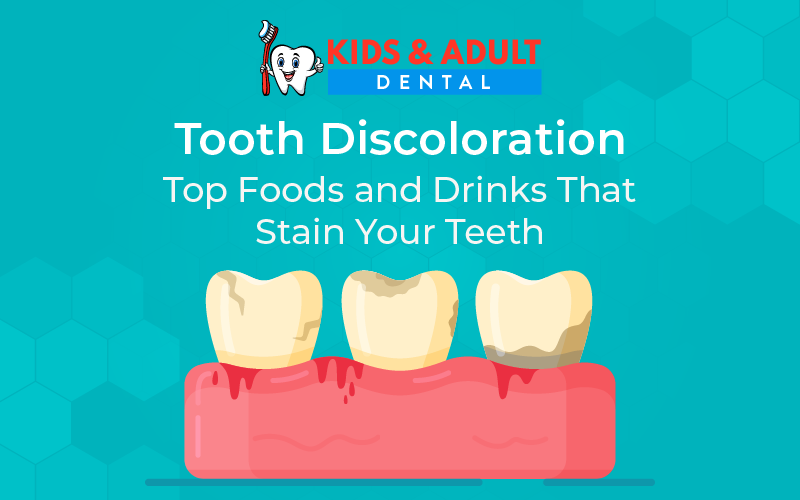Tooth discoloration is a common dental concern that affects many individuals worldwide. It refers to the gradual or sudden change in the color of the tooth surface, which can vary from yellowish tinges to dark brown stains.
Discoloration can occur due to various factors, including external staining agents present in food and drinks, as well as internal issues like tooth trauma or certain medications.
When it comes to maintaining a bright and captivating smile, being aware of the foods and beverages that can stain your teeth is essential.
Our diet plays a significant role in determining the overall health of our teeth, and certain items we consume regularly can lead to noticeable discoloration over time.
Types of Tooth Discoloration
- Extrinsic Stains: Surface stains caused by dark foods, drinks, and smoking.
- Intrinsic Stains: Stains within the tooth caused by factors during tooth development or certain medications.
- Age-Related Stains: Natural yellowing of teeth over time.
- Fluorosis: Discoloration from excessive fluoride intake during tooth development.
- Tetracycline Stains: Intrinsic stains due to prolonged tetracycline use during tooth development.
- Dental Trauma: Discoloration resulting from tooth injuries.
- Genetic Discoloration: Inherited tooth discoloration in varying shades.
Common Culprits: Foods That Stain Teeth
1. Coffee: The Dark Elixir

Coffee, a beloved morning pick-me-up for many, contains tannins and chromogens, both of which contribute to tooth discoloration.
Tannins are plant-based compounds that make it easier for chromogens, which are highly pigmented molecules, to stick to tooth enamel. Over time, this can lead to unsightly stains that affect the overall appearance of the teeth.
To reduce the staining effects of coffee, consider drinking it through a straw to minimize contact with the teeth. Additionally, brushing your teeth shortly after consuming coffee can help prevent the pigments from adhering to the enamel.
Related Post: Teeth Cleaning for Coffee Lovers: How to Prevent Stained Teeth
2. Tea: A Cup of Tannins
Tea, especially black tea and some herbal varieties contains tannins similar to those found in coffee. These tannins can bind to the enamel and cause surface stains.
For tea lovers concerned about tooth staining, opting for green or white tea, which contains fewer tannins, can be a better choice. Adding milk to tea can also help reduce its staining potential.
3. Red Wine: Cheers to Stained Teeth

Red wine enthusiasts may need to be mindful of its potential impact on tooth discoloration. Red wine contains both chromogens and tannins, which can adhere to tooth enamel and create stains over time.
Enjoying red wine with meals can help reduce its staining effects, as the presence of food creates a protective barrier on the teeth. Sipping water alongside wine can also help dilute its acidity and wash away pigments.
4. Berries: Nature’s Tinting Agents
While berries are packed with health benefits, they are also known for their pigmented compounds, such as anthocyanins. These compounds have a strong affinity for enamel, leading to visible surface stains.
To minimize berry-related stains, it’s advisable to consume them in moderation and rinse the mouth with water after eating them.
5. Tomato-based Sauces: A Colorful Culprit
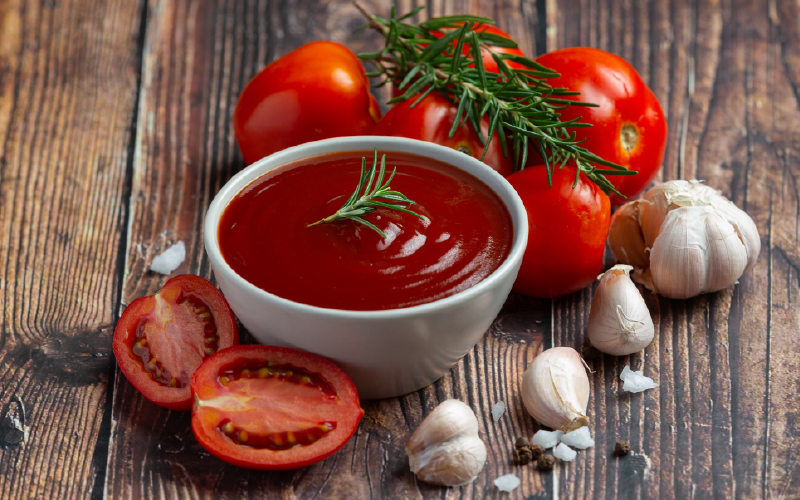
Tomato-based sauces, like ketchup and pasta sauce, are not only intensely colored but also acidic. The combination of acidity and pigmentation can lead to tooth discoloration over time. Pairing tomato-based sauces with calcium-rich foods like cheese can help neutralize the acidity and minimize staining effects.
Read Also: Why You Should Consider Replacing Silver Fillings
Beverages: Drinks That Discolor Teeth
1. Cola and Soft Drinks: Sugary and Staining
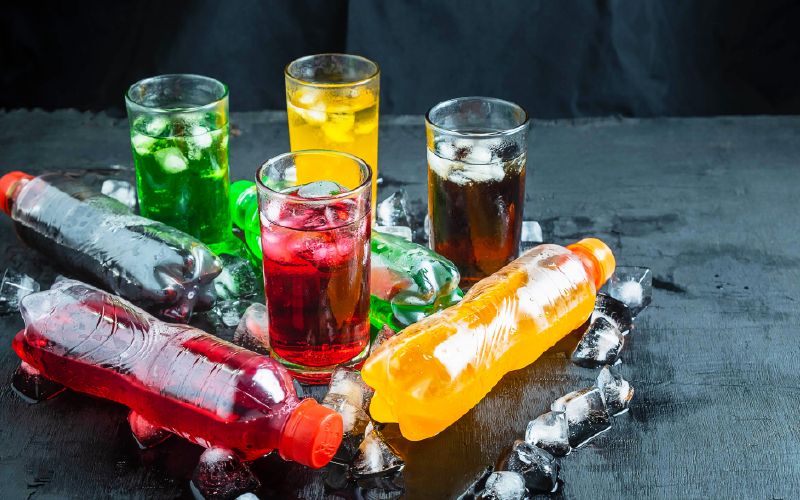
Cola and other soft drinks are notorious for their high sugar content and acidity, making them a double threat to dental health.
Sugar fuels harmful bacteria in the mouth, leading to the production of acids that erode enamel and cause stains.
Opting for water or milk as primary beverages can protect teeth from the damaging effects of sugar and acidity.
2. Fruit Juices: Vitamins and Stains
While fruit juices are a popular choice for vitamins and nutrients, they can be detrimental to dental health due to their high sugar and acid content.
Consuming fruit juices in moderation and during meals can help reduce their impact on tooth enamel.
Using a straw to drink juices can minimize direct contact with teeth, lowering the risk of staining.
3. Sports and Energy Drinks: Hydration with a Price

Sports and energy drinks are marketed as performance-enhancing beverages, but they can be harmful to dental health. High sugar levels and acids in these drinks can lead to enamel erosion and staining. Choosing water as the primary hydrating beverage can protect teeth from stains and erosion.
Read Also: The Hidden Benefits of Regular Dental Check-ups for Adults
Acidic Foods: Corrosive to Enamel
1. Pickles and Vinegar: Acidic Bites
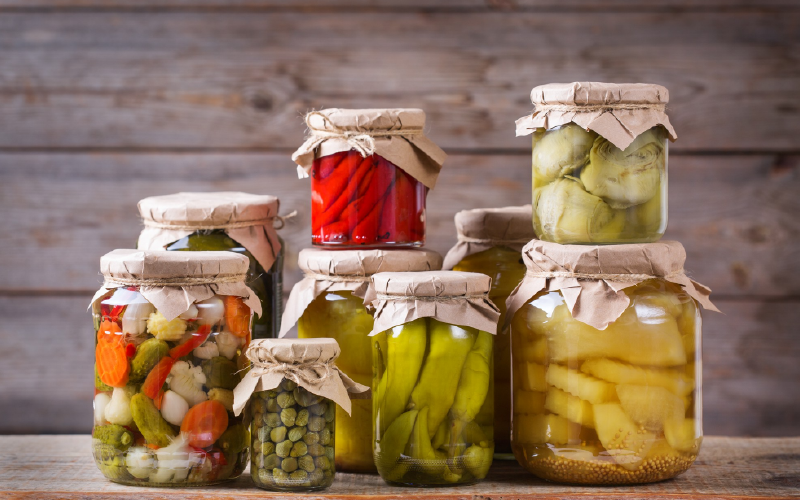
Pickles and foods marinated in vinegar are acidic and can erode enamel when consumed frequently. Limiting the frequency of consuming acidic foods and rinsing the mouth with water after eating them can minimize the potential for enamel erosion.
2. Citrus Fruits: Vitamin C and Staining
Citrus fruits, such as oranges and lemons, are excellent sources of vitamin C, but they also contain citric acid. This acid can weaken enamel and make teeth susceptible to stains. Enjoying citrus fruits in their whole form, rather than as juices, can help reduce their acidity’s direct impact on teeth.
Dark Sauces and Condiments: Masking Bright Smiles
1. Soy Sauce: Dark and Damaging

Soy sauce, a staple in many Asian cuisines, contains pigments that can adhere to enamel, leading to discoloration. Choosing low-sodium soy sauce and using it sparingly can help minimize its staining effects.
2. Balsamic Vinegar: Rich in Taste, Poor for Teeth
Balsamic vinegar’s intense color and acidity can cause teeth discoloration over time. Preventing balsamic vinegar stains on teeth can be achieved by using it in moderation and pairing it with foods rich in calcium.
Read Also: Red Flags of Root Canal Trouble
Spices and Curries: Bold Flavors, Dull Teeth
1. Turmeric: Golden Spice, Yellow Teeth?
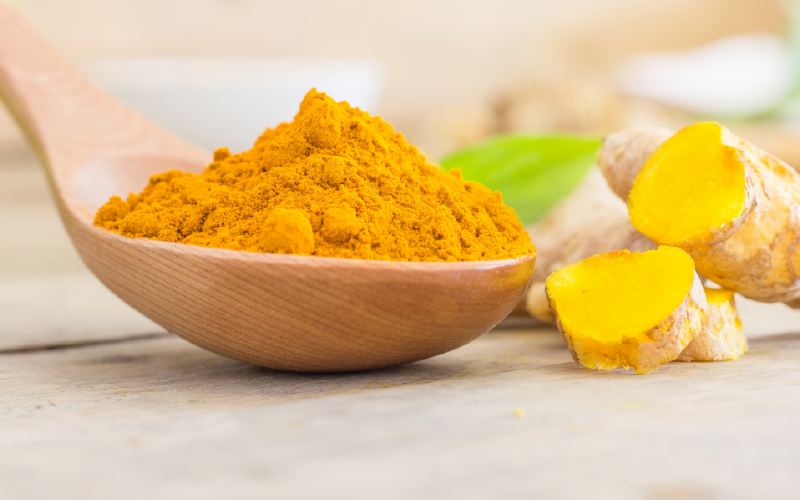
Turmeric, known for its numerous health benefits, contains pigments that may leave a yellow tint on teeth over time. Using turmeric without compromising dental health can be achieved by consuming it in moderation and practicing good oral hygiene.
2. Curry: Tasty, but Teeth Unfriendly
Curry’s rich colors can have an impact on tooth discoloration. To indulge in curry while caring for teeth, rinsing the mouth with water after eating curry, and brushing teeth at least 30 minutes after consumption can help minimize staining effects.
Ways to Prevent Teeth Stains
1. Brushing Techniques: The Right Way to Brush

bristled toothbrush and brushing for at least two minutes, are essential for removing surface stains and maintaining oral health. Remember to brush your teeth regularly to achieve the best results.
2. Flossing: Reaching Areas Toothbrushes Can’t
Flossing helps remove food particles and plaque between teeth, preventing stains from forming in hard-to-reach areas.
Read Also: Flossing With Braces
3. Using Mouthwash: Additional Defense Against Stains

Mouthwash can complement brushing and flossing by providing an extra layer of protection against stains and oral bacteria.
Regular Dental Check-ups: Catching Stains Early
Routine dental check-ups and cleanings allow dental professionals to detect and address early signs of discoloration, ensuring a healthy and radiant smile.
Teeth Whitening Options
-
At-Home Whitening Kits: Pros and Cons
At-home teeth whitening kits offer convenience, but their effectiveness may vary. These kits typically contain whitening agents like hydrogen peroxide, which can bleach teeth and reduce stains. However, they may not provide the same level of results as professional treatments.
-
Professional Teeth Whitening: The Dentist’s Approach
Professional teeth whitening procedures, conducted by dental professionals, offer more significant and longer-lasting results compared to at-home kits. Dentists can use stronger whitening agents and customize the treatment based on individual needs.
-
Natural Teeth Whitening Remedies: Fact or Fiction?
Various natural remedies, like baking soda, activated charcoal, and coconut oil pulling, are touted as teeth-whitening options. While some may have mild effects, their long-term safety and efficacy are still a subject of debate. Consulting with the best dentist in Denver colorado before trying natural remedies is advisable.
Conclusion
In conclusion, maintaining a bright smile free from discoloration involves mindful dietary choices, good oral hygiene, and regular affordable dentistry in Colorado. Avoid excessive consumption of staining beverages and practice preventive measures.
Professional teeth whitening services, offered by skilled kids and adult dentists, can further enhance your smile’s brightness, leaving a lasting positive impression. A healthy smile reflects overall well-being and boosts confidence. Whether it’s routine care or emergency dental services you need, entrusting your smile to the best emergency dentist near you ensures that both children and adults receive the highest level of dental care tailored to their specific needs.

